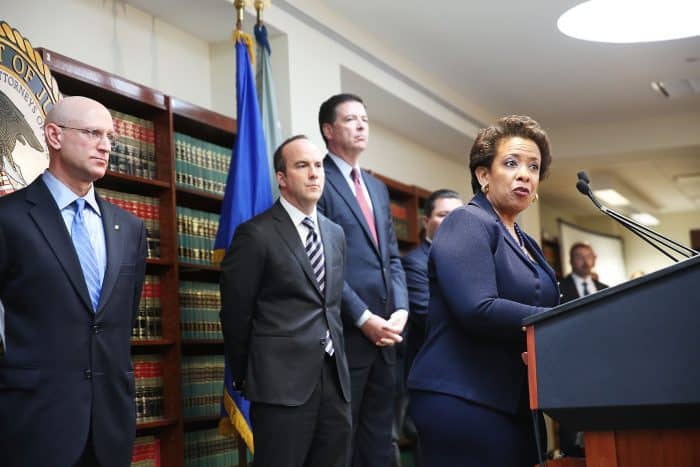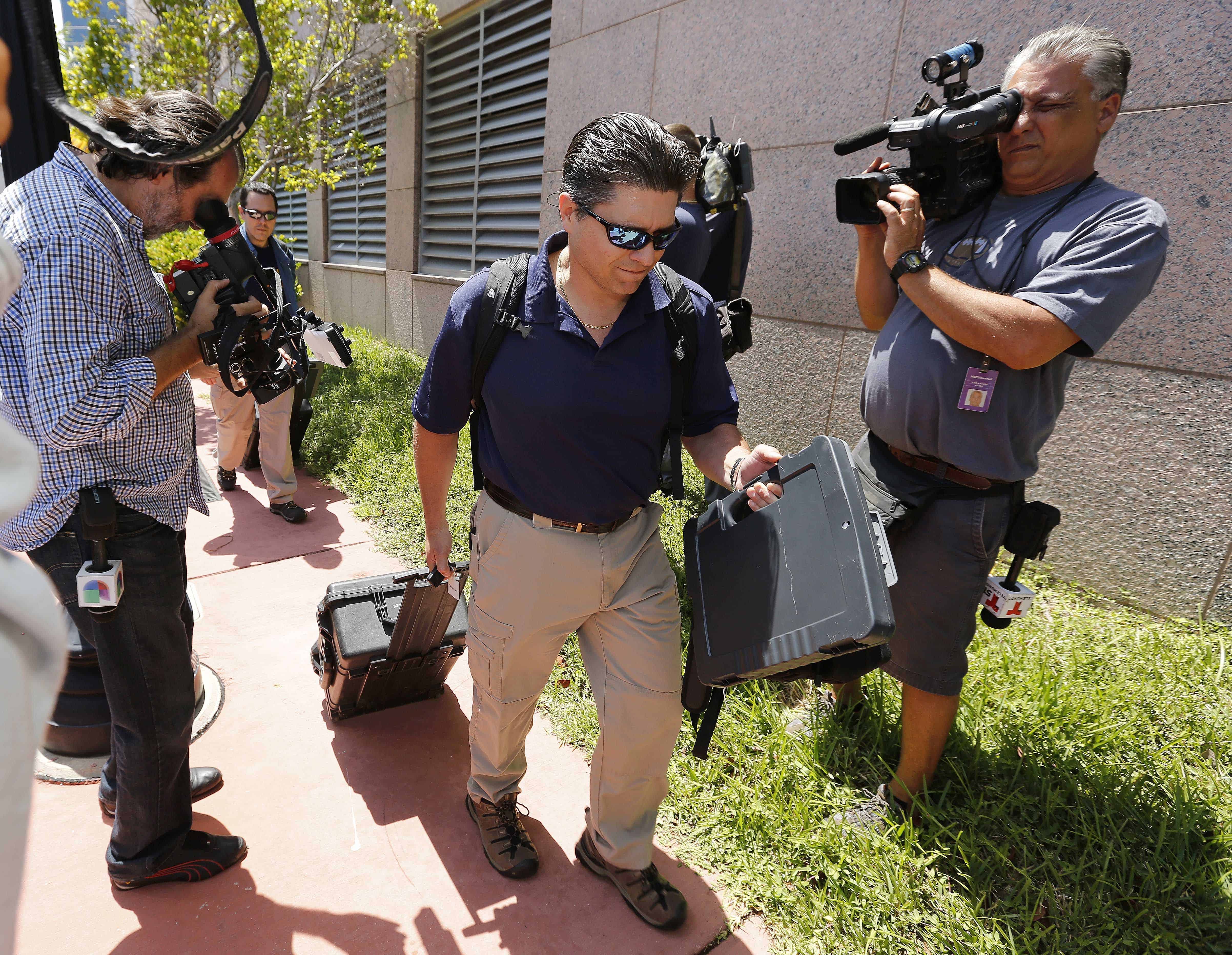In November 2010, former U.S. President Bill Clinton and then-Attorney General Eric Holder Jr. traveled to Zurich to lobby football’s world governing body in support of the U.S. bid to host the 2022 World Cup.
Football’s popularity was rising in the United States, and a successful bid would bring the most-watched sporting event in the world back to the country for the first time in nearly three decades.
The U.S. was not successful. Instead, Qatar — a small, wealthy emirate on the Persian Gulf — became the first Arab country to be awarded the event. And almost immediately the decision to place a summer football tournament in a country where daytime temperatures in those months often exceed 120 degrees drew fierce criticism — and deep suspicion.
Even before Clinton and Holder had left Switzerland, there “was a lot of talk that the decision had been bought,” said a person with knowledge of the private conversations among U.S. officials in Switzerland.
Concern in 2010 about deep corruption in FIFA helped galvanize a burgeoning investigation into the international football organization and the way the World Cup is awarded. It was launched in the U.S. attorney’s office in Brooklyn, New York, where Loretta Lynch, who this year became Holder’s successor, was starting her second term as U.S. attorney.
“There’s a lot of things that go into beginning an investigation,” Lynch said in an interview with The Washington Post, when asked about what U.S. officials heard in Zurich. “There had been allegations of corruption within FIFA for some time.”

Lynch oversaw the investigation into FIFA — the Federation Internationale de Football Association — for nearly five years. Investigators finalized their plans to make arrests in Switzerland in the last couple of weeks, as Lynch was beginning her tenure as the new attorney general.
On Wednesday, she announced a stunning 47-count indictment charging FIFA officials with involvement in bribery and kickbacks “year after year, tournament after tournament.”
While the Justice Department’s case focuses on the decision to hold the 2010 World Cup in South Africa, the probe continues into the awarding of the 2018 World Cup to Russia and the 2022 World Cup to Qatar.
“The Swiss authorities are continuing an investigation of the awarding of other World Cup venues,” Lynch said. “We look forward to seeing the information that their investigation ultimately reveals. ”
What made the complex FIFA investigation so difficult, Lynch said, is that the alleged corruption goes back decades and required the collection of evidence overseas and “the analysis of literally reams and reams of records.”
“Our investigation revealed that at least from the early 1990s, the defendants in question began turning their positions with the soccer organizations into their own personal piggybank,” Lynch said. “It’s often very difficult to obtain contemporaneous records for things that go back that far. … You also have to make sure that memories are accurate.”
With only one month on the job as the nation’s top law enforcement official, Lynch has made several high-profile domestic announcements, including the investigation into police misconduct in Baltimore and a settlement this week with the city of Cleveland over policing practices.
But the unsealing of the U.S. indictments early Wednesday morning and the high-profile round-up of FIFA officials in Zurich thrust Lynch — who is known to shun the limelight — squarely onto the international stage.
Several bosses of the game were arrested at a luxury hotel in Zurich and now face extradition to the United States.
The lengthy, 164-page criminal indictment of bribery, racketeering, money laundering and fraud charges against 14 international soccer officials and sports marketing executives “reads almost like a novel,” in its clear narrative arc, Lynch said.
But at the beginning of an investigation, such as the one into FIFA, “nothing is clear,” Lynch said.
“It’s like peeling an onion back,” Lynch said. “You look at certain business arrangements and they lead you to more business arrangements between individuals, between companies. So, you want to be careful and make sure that you aren’t missing either important connections that will tell you more about the defendants already on your radar or other people who may have also been involved in this.”
The alleged corruption stretched as far back as 1991 when two generations of football officials used their positions of trust within the Confederation of North, Central American and Caribbean Association Football and the South American Football Confederation to solicit bribes from sports marketers in exchange for the commercial rights to their soccer tournaments, Lynch said.
The probe involved FBI and IRS agents who had to undertake “a very, very painstaking analysis of financial records” and look for corroboration of information that involved international soccer officials and sports marketing executives who were entrusted “with keeping soccer open and accessible to all.”
“They held important responsibilities at every level, from building soccer fields for children in developing countries to organizing the World Cup,” Lynch said at a press conference in New York. “They were expected to uphold the rules that keep soccer honest and protect the integrity of the game. Instead, they corrupted the business of worldwide soccer to serve their interests and enrich themselves.”
© 2015, The Washington Post






